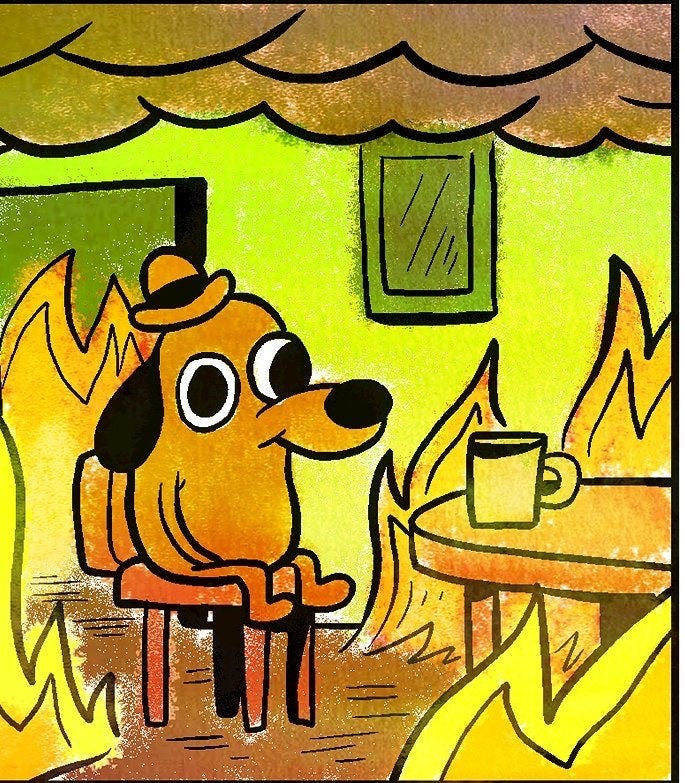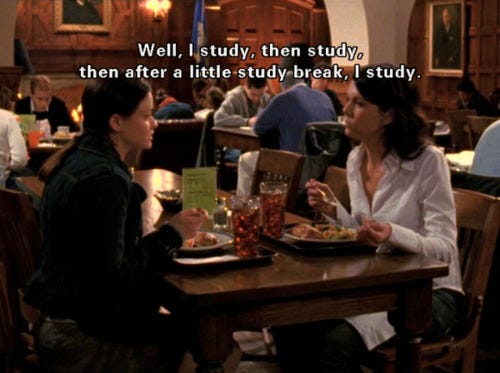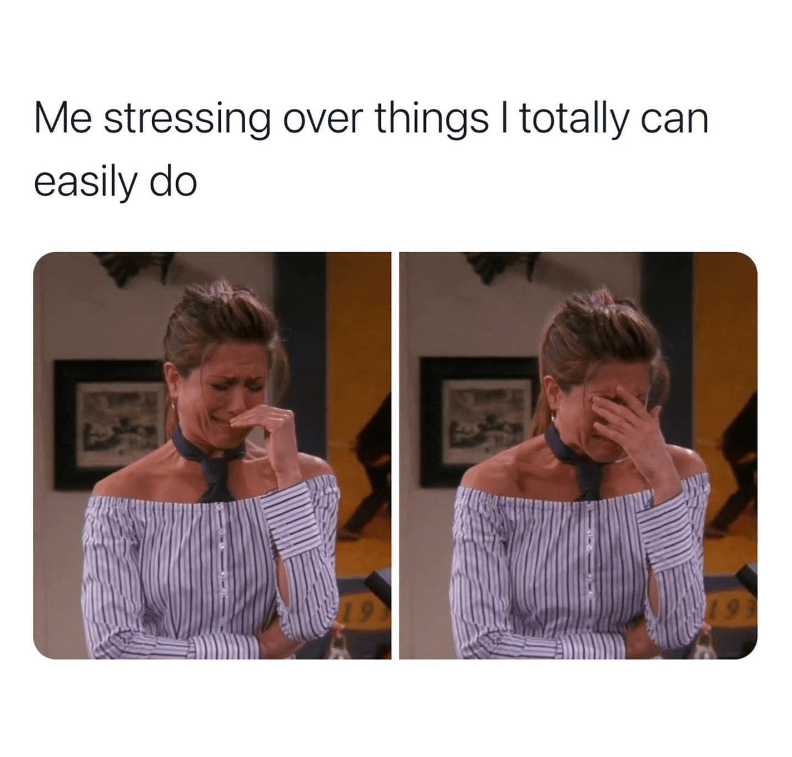
Turns out, my motivation needs a deadline.
Years ago, I shadowed a mentor and friend as she went about her work day — we’ll call her “V.” I was there trying to decide if I might like to follow in her footsteps (spoiler alert, I did). As I observed her, I witnessed that her role was a bit like a circus performer spinning plates.
From any given direction, people were seeking advice, meetings were happening, emails were flooding her inbox…proverbial fires everywhere.
Not an uncommon experience in corporate America, but she was running the entire department, so the magnitude was significant. (and yes, she’s a badass)

As the day came to a close, we debriefed in V’s office. She inquired about my observations, and my 23-year-old-too-stunned-to-speak brain conjured something profound like “you’re so busy!”
Always the wordsmith. 🤣
Despite the banality of the response, the conversation eventually veered into a sentiment that has stayed with me ever since.
She shared (and I’m majorly paraphrasing) that her busyness maintained her motivation and productivity, ultimately improving her focus.
For years, like many good millennials, I misinterpreted this as a guiding light for working without regard to balance or rest.

As time passed, I recognized that wasn’t *exactly* what V meant.
She wasn’t suggesting that working yourself ragged was the solution to productivity. Instead, her sage wisdom stemmed from the notion that when time becomes a more limited resource, you’re forced to move more confidently and efficiently.
Now, I understand this is not true for everyone. Some people don’t perform as well under pressure. For me? I need the room to be a *little bit* on fire.1
For those who are new (thanks for joining C’est La Vie!) and for those who need a refresher, I spent much of 2024 hyper-focused on completing my first manuscript, Mise En Place.
My dedication to a timeline (motivated, in part, by pitch sessions to literary agents at the Kauai Writers Conference) was intense, to say the least.
I moved through the stages of writing and revising without too many instances of feeling blah. Of course, there were days when the flow wasn’t flowing, but the intermittent deadlines (like turnaround time for a dev edit) along the way served as a huge motivator.
When external forces, even those of my choosing, push against me, I will deliver.

Yet, here we are almost one year after completing my shitty first draft of Mise En Place, and I’m trying to write another manuscript. No workshop. No conference. No self-imposed deadline with any real consequence.
Obviously, I want to write this next manuscript. I’ve got about 8,000 words drafted, another 10k in notes, and a plan for the plot. This isn’t just an amorphous idea.
However, there’s no fire surrounding my desk; therefore, it feels like the imaginary deadline I’ve set for a completed first draft has no teeth. Procrastination has been the name of the game, until this last Saturday.
I noted something that made me reflect upon V’s observation about her work all those years ago and how it applies to my writing.
At noon on Saturday, I had plans with a friend. I set a mental timer for 10:30 a.m. to begin getting ready. At 9 a.m., I plopped myself into my desk chair and started writing.
One hour later, I’d written over 500 words, which was the most I’d managed to write for days.
The only fire? The need to wash my hair before lunch.

Hardly a life-altering deadline. Yet, somehow it worked. It generated just enough pressure to produce results. Upon reflection, I’ve come to the following conclusion:
Without time-constraining boundaries, your objective, no matter how much you desire to reach it one day, can easily be put on the back burner.
It sounds so simple, yet it can be wildly complicated.
As the minutes ticked by Saturday morning, I didn’t even watch the clock. I knew my time was scarce, and my brain did the rest. My desire to write this manuscript wasn’t magically more intense than the prior days, but the competition between me and my mental timer was fiercely motivating.
Are they the best 500 words I’ve ever written? Maybe not. However, I wholeheartedly believe that writing forward is inherently valuable. There’s always time to revise later.
But I sat down with enough constraint to make progress, and it felt amazing!
So, as I continue to navigate this next manuscript’s first draft, I’m going to try and rely on smaller time slots to help me focus my attention and improve productivity.
As someone with anxiety, tricking my brain into a false sense of urgency shouldn’t be too hard, right?
Are you like me—do you need a little fire around you to push toward the next goal? Or does pressure freak you out?
Until next time,
Megan
Turns out there are a LOT of articles and some scientific studies on the correlation between pressure and performance. Psychology Today, BBC, NIH





Wise words Megan, and so much relatable stuff (including, but not limited to, the real strategizing involved with when to wash our hair). I especially loved this line:
"Instead, her sage wisdom stemmed from the notion that when time becomes a more limited resource, you’re forced to move more confidently and efficiently."
I relate to this as I feel like the busier and more ambitious I am, the more clear-eyed I am about how I do (and don't) want to spend my time, and with whom. I'm also deeply driven by deadlines/external validation/accountability...I think so many writers crave some level of these external touchpoints, to feel like we're not living our entire lives inside our own heads. : )
wow, wow, wow. all the feels.